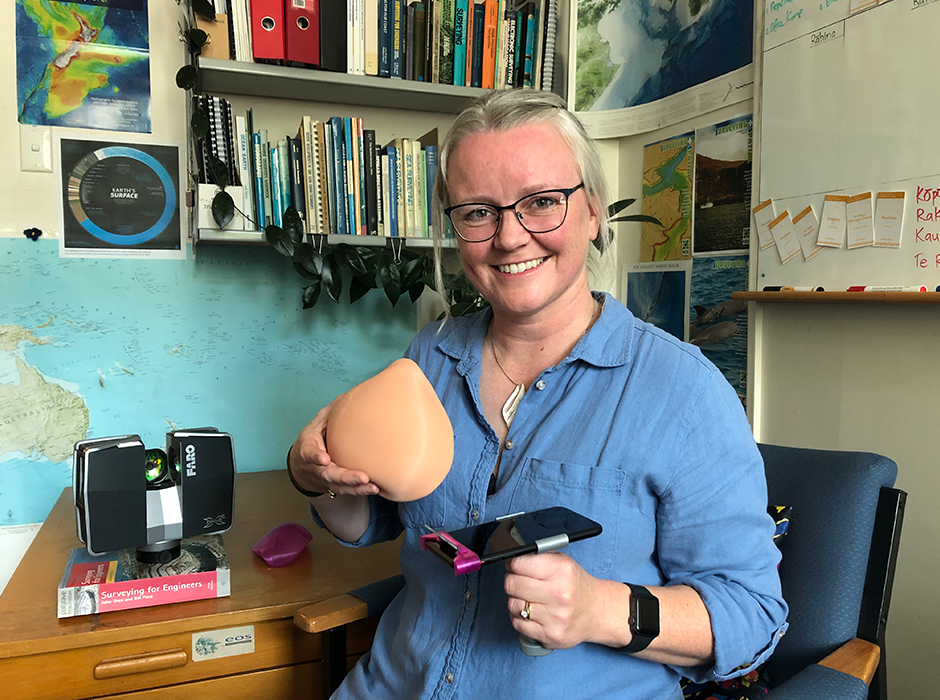
Lecturer in the School of Surveying Te Kura Kairūri, Emily Tidey, is using her own experience of obtaining a prosthetic breast to help others with breast cancer.
In early 2022, Emily Tidey found a lump on her breast. Following a mastectomy and prosthetic breast, the lecturer in the School of Surveying Te Kura Kairūri is now using her own experience to help others in their breast cancer journey.
Thankful that her own cancer outcome didn’t require further treatment, Tidey explored the option of having a prosthetic breast made following her recovery and discovered the provider myReflection.
“I was intrigued by their method of scanning the chest wall and creating a one-of-a-kind custom fitted prosthesis just for me,” Tidey says.
She describes the scan as a very simple procedure that involved passing an iPhone back-and-forth to scan the shape of her existing breast and the chest wall of the removed breast. As a surveyor, Tidey was particularly interested in the nature of the data collection.
“The software developed by myReflection safely and non-intrusively scanned my chest and built up a dataset of measurements that created a 3D image of the front of my torso.”
Following discussions with one of myReflection’s founders, Tidey trained as a scanner and has been offering appointments for the provider once a month for the last year. She says it’s fulfilling to be involved and make a valuable contribution in the cancer journey of the clients.
“Having had my own experience helps me to empathise with the women coming to see me, and I’ve ended up having some wonderful conversations with people while we’re working through their session, sharing our experiences, and often providing tips to each other.
“There are so many interesting things people use to fill their bra prior to getting their custom prosthesis, and during sessions I’ve been so impressed with the creative options used! But all are looking forward to something that doesn’t move around, is smooth fronted and the right size for them.”
While Tidey reflects she’s glad she took up this opportunity to be involved with scanning for myReflection, she’s also keen to help spread the important message of her experience with breast cancer.
“I was 38 years old at the time of surgery and have no family history of breast cancer,” Tidey describes. “I’ve done monthly self-breast checks for some time, and I credit this with finding and averting what could have been much worse.”
When Tidey talks to people about her experience, her recurring message is clear and concise: “Please feel your boobs.”
Kōrero by Guy Frederick, Sciences Communications Adviser